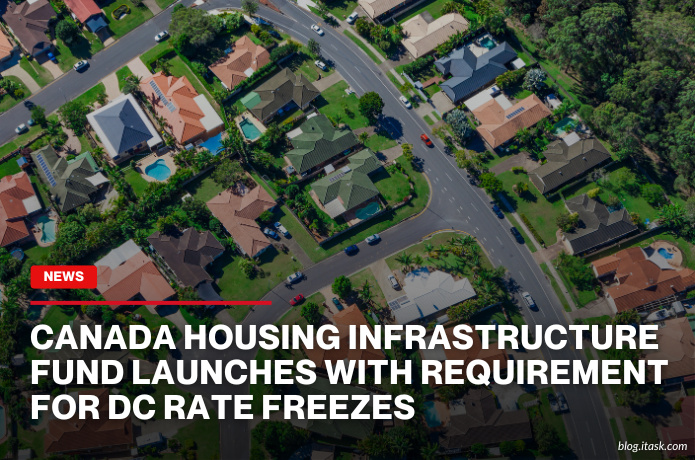Canada Housing Infrastructure Fund Launches With Requirement For DC Rate Freezes
Canada Housing Infrastructure Fund Launches With Requirement For DC Rate Freezes

The Canadian government has launched the $6 billion Canada Housing Infrastructure Fund (CHIF) to address the ongoing housing crisis and improve essential infrastructure. Aimed at accelerating housing projects and supporting vital systems like water and waste management, this initiative forms part of the government’s broader Budget 2024 housing strategy.
A key requirement for municipalities applying for funding under CHIF is to freeze or lower development charges (DCs), which are fees collected to cover infrastructure costs associated with new developments. These charges have often been criticized for raising housing prices and creating barriers for affordable housing projects.
The CHIF consists of two funding streams: a $1 billion “direct federal investment” for select municipal projects and $5 billion allocated through provincial and territorial agreements. The latter requires governments to contribute at least 33% to eligible projects and adhere to federal goals like supporting renters' rights.
Applicants must meet stringent criteria, including ensuring affordability and advancing housing-related infrastructure. Importantly, they cannot use CHIF funds for the same project across both streams, emphasizing strategic use of federal investments. Applications are approved on a first-come, first-served basis.
The decision to mandate DC freezes has stirred debate. Some argue it ensures affordability for homebuyers, while others caution it may strain municipal budgets, potentially affecting the quality or timeline of infrastructure improvements.
This initiative complements other housing measures in Budget 2024, including strategies to repurpose underutilized federal properties, implement taxes on vacant lands, and enforce stricter regulations on short-term rentals. Together, these actions aim to bolster housing availability and affordability across Canada.
